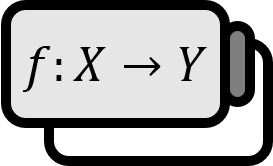Analytic Proof of 1+2+3+4+5+⋯=-1/12
Theorem
$$ \begin{align*} & 1 + 2 + 3 + 4 + 5 + \cdots \\ =& \sum_{n \in \mathbb{N}} {{ 1 } \over { n^{-1} }} \\ =& \zeta (-1) \\ =& -{{ 1 } \over { 12 }} \end{align*} $$
Description
If you only focus on how summing positive numbers can result in a negative, you will never understand this post. The key point is that $\sum_{n \in \mathbb{N}} n$ is expressed as the Dirichlet series $\displaystyle \sum_{n \in \mathbb{N}} {{ 1 } \over { n^{-1} }}$, and it is computed as the function value $\zeta (-1)$ of its analytic continuation, the Riemann zeta function $\zeta$.
If you don’t even try to understand the proof and only pick what you can easily handle, saying things like “But the equation doesn’t hold, right?” or “Couldn’t this be used to show a contradiction?”, it’s worse than not knowing at all. To be precise, note that what this post introduces is in fact only the proof concerning the equation $$\displaystyle \zeta (-1) = - {{ 1 } \over { 12 }}$$.
Proof1
Riemann’s functional equation: $$ \zeta (s) = 2^{s} \pi^{s - 1} \sin \left( {{ \pi s } \over { 2 }} \right) \Gamma (1-s) \zeta (1-s) $$
According to the Riemann functional equation, in $z=-1$, the value of the gamma function $\Gamma (1-z)$ is $\Gamma (2) = 1! = 1$, and according to Euler’s proof, $\displaystyle \zeta (2) = {{ \pi^{2} } \over { 6 }}$, therefore
$$ \begin{align*} & \zeta (-1) \\ =& {{ 1 } \over { 2 \pi^{2} }} \sin \left( - {{ \pi } \over { 2 }} \right) \Gamma (2) \zeta (2) \\ =& {{ 1 } \over { 2 \pi^{2} }} \cdot (-1) \cdot 1! \cdot {{ \pi^{2} } \over { 6 }} \\ =& - {{ 1 } \over { 12 }} \end{align*} $$
■
